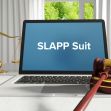Under California law, parties engaged in litigation are not liable for communications made during “planned or pending court actions.” However, a State appellate court has ruled that comments on defendant’s blog and Yelp are “akin to press releases,’ and therefore not immunized by California’s litigation privilege.
Vanessa Hamilton, the defendant, made several disparaging comments against Paglia & Associates, the construction company she hired to repair the damage suffered by her house when a tree fell on it. The company does business under the name “Protech Construction.” Protech had been recommended by her insurance company, but Hamilton was dissatisfied with the quality of repair work. As a result, she reported the company to the Contractors State License Board (the Board) which she believed would immunize her from defamation suits by the defendant. The Board ruled in Hamilton’s favor, awarded her $4,750 in civil penalties, and ordered Protech to pay her $20,371.
Although Hamilton won her case before the Board, she was not satisfied. She began posting negative reviews of Protech in 2019 that claimed the contractor failed to properly level her front and back yard, install attic vents, and “provide a proper driveway width.” She aired her complaints on social media, through her blog and via Yelp attacks. Some, but not all, of her posts mentioned her victory at the Board. Her posts included comments that Paglia had “committed hard fraud” and “turned her life around.”
For example, defendant’s Yelp posting in January 2015 said, “Lesson Learned from Protech. Protech is Deceptive and Threatening Lesson #1 Contractors and Insurance Adjusters maintain confidential relationships that exclude the consumer... This structure is all laminate and used goods that came from other projects Protech was working on in the area. Protech left me with no owners manuals, warranties, or receipts, but they took money that I did not authorize they be paid. Lesson #4 Never use a contractor from Protech.” Her comments are reproduced here just as they appeared.
Paglia sued Hamilton in Los Angeles Superior Court before Judge Rupert Byrdsong for this posting and approximately 20 others that were similar. He said they constituted libel per se, a tort that occurs when false statements of fact are made and that injure a party’s reputation. Hamilton filed a special motion to strike (an "anti-SLAPP" motion), but the trial court denied her motion without explanation. A unanimous 3-0 opinion, authored by Justice John Shepard Wiley of Division Eight of California’s Second District Court of Appeal affirmed Byrdsong’s ruling on December 27.
Hamilton claimed that her comments were privileged under California Civil Code §47 (b), which says “Statements made and things said or done in connection with a planned or pending Court action... are considered “privileged” and no legal action may be brought to collect damages from such statements or actions.” Justice Wiley disagreed with Hamilton’s characterization of the privilege, stating…“the litigation privilege does not cover statements made entirely outside the litigation context. Using the internet to speak publicly is every American’s right but, if people wish to defame private figures online, they do so at their own risk.”
The opinion went on to discuss the legal standard for special motions to strike. Paglia had the burden of proving his defamation had “minimal merit.” Under this standard, Hamilton’s words were examined and the court found that her accusation that Paglia had “committed hard fraud,” was libel per se, since it “would tend to injure” the contractor’s reputation.
In her defense, Hamilton asserted the litigation privilege because her posts “related to a matter under consideration by a state agency.” Wiley disagreed, holding that “her online postings were not sufficiently connected to this agency’s proceedings. Instead, they were like press releases: efforts to communicate with the public at large. The litigation privilege does not protect press releases. It did not protect Hamilton.”
Wiley further explained that the California Supreme Court in the 1990 case of Silberg v. Anderson broadly interpreted the litigation privilege because its “main purpose is to afford litigants and witnesses complete access to courts without fear of later harassment by derivative tort actions.” Yet,” he continued, “every privilege has limits. In pursuit of desirable policy goals, an absolute privilege can create injustice by barring actions that would vindicate injuries from false and defamatory statements. At some point, an absolute privilege must give way. But at what point?” he asked.
He then answered, citing the 1996 California case Rothman v. Jackson that ruled the “litigation privilege does not extend to litigating in the press,” because such an extension could poison jury pools and “bring disrepute upon both the judiciary and the bar.” He distinguished Hamilton’s comments from those protected under the litigation privilege because her statements “did not function as a useful step in the litigation process.” Rather, they “lacked a substantial connection to litigation,” but were “merely public denunciations of Paglia.”
Hamilton then asserted that all her statements were true. Paglia, however, was able to prove that all his repairs were made in order to bring her home into compliance with building codes. The defendant then argued that her statements were protected because they were opinions, not provable statements of fact. The court again disagreed, determining that her statements were asserted as facts. Her final attempt at defeating Paglia’s defamation claims was to ask the court to strike individual portions of the contractor’s complaint. Wiley resisted this maneuver, writing that since the defendants failed to provide specific examples of what to strike, “Appellants may not enlist the court as their legal assistant to develop arguments they merely suggest.”
The ruling of the trial court was affirmed and the appellate court’s decision set useful parameters for use of the litigation privilege in California. Although limited to one state, this case might be helpful in other contexts, including the current roller coaster of rulings about whether ex-President Trump’s out-of-court social media posts, which relate to his current array of legal problems, will be protected from defamation suits by those he refers to in a pejorative manner.
UPDATE 9/6/24: The original article reported that Hamilton won her case before Judge Byrdsong in Superior Court. Actually, Hamilton filed an anti-SLAPP motion to strike, which was denied by the judge, as was her ensuing appeal. Hamilton has thus far only prevailed at the Board level, but not in court. The article has been corrected. We regret the error.






